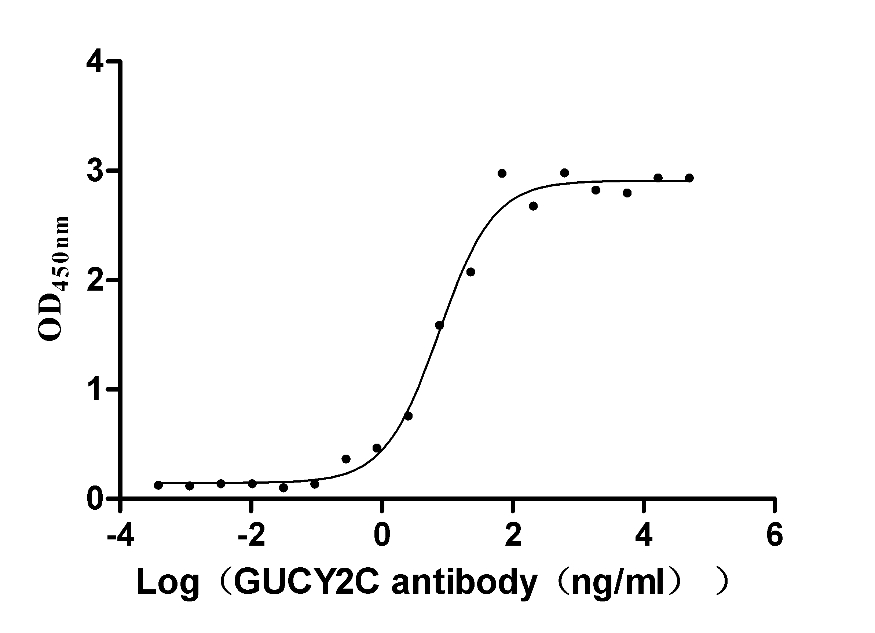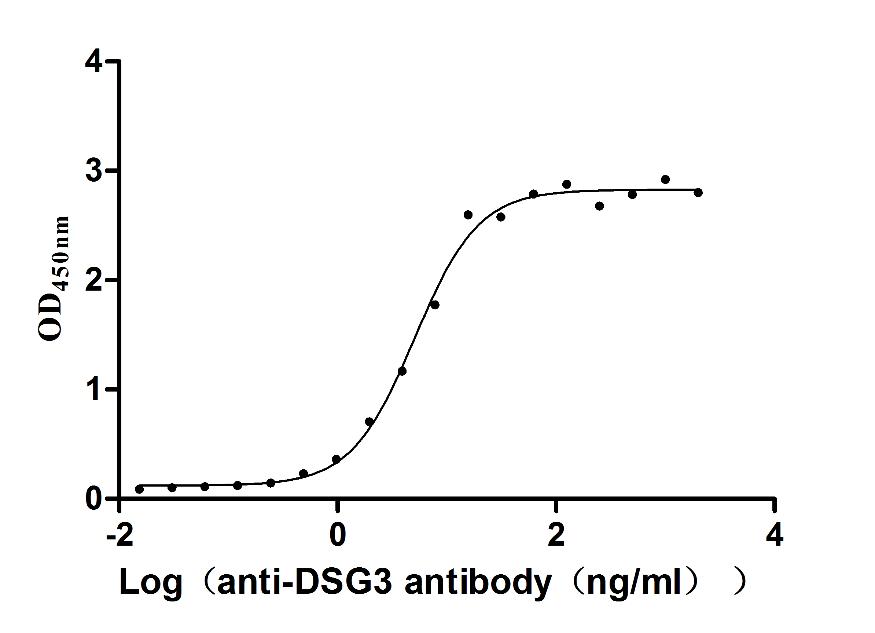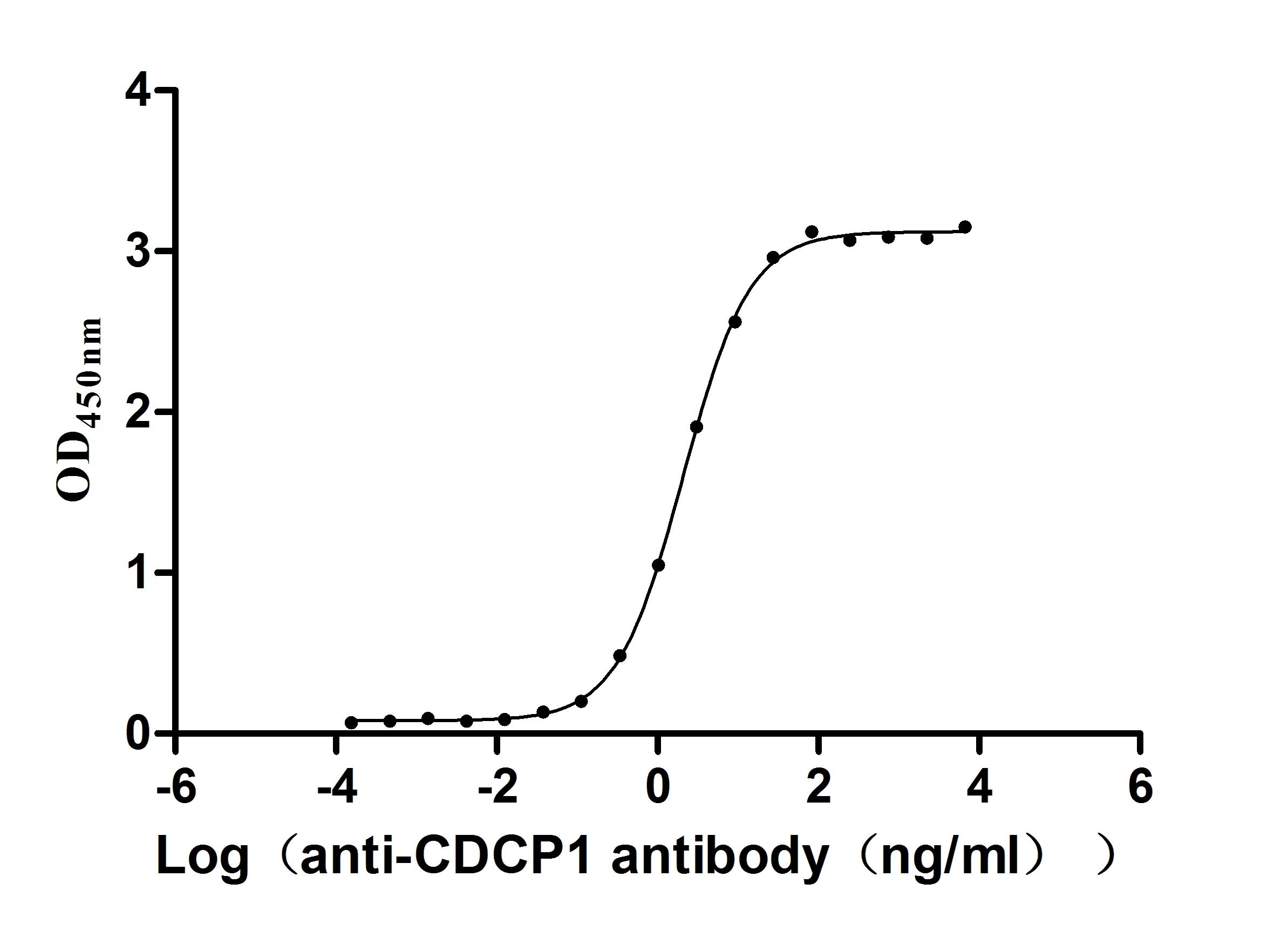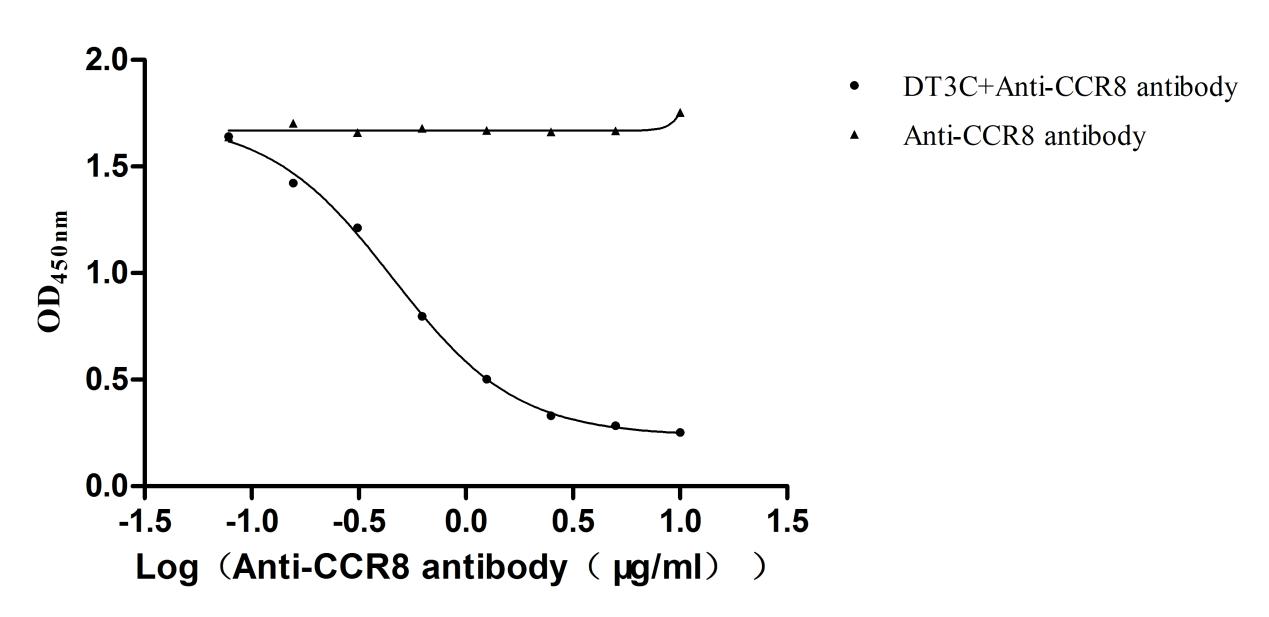Recombinant Human Elongation factor 1-alpha 2 (EEF1A2 EEF1AL STN)
-
中文名稱:
-
貨號:CSB-YP007412HU
-
規(guī)格:
-
來源:Yeast
-
其他:
-
中文名稱:
-
貨號:CSB-EP007412HU
-
規(guī)格:
-
來源:E.coli
-
其他:
-
中文名稱:
-
貨號:CSB-EP007412HU-B
-
規(guī)格:
-
來源:E.coli
-
共軛:Avi-tag Biotinylated
E. coli biotin ligase (BirA) is highly specific in covalently attaching biotin to the 15 amino acid AviTag peptide. This recombinant protein was biotinylated in vivo by AviTag-BirA technology, which method is BriA catalyzes amide linkage between the biotin and the specific lysine of the AviTag.
-
其他:
-
中文名稱:
-
貨號:CSB-BP007412HU
-
規(guī)格:
-
來源:Baculovirus
-
其他:
-
中文名稱:
-
貨號:CSB-MP007412HU
-
規(guī)格:
-
來源:Mammalian cell
-
其他:
產(chǎn)品詳情
-
純度:>85% (SDS-PAGE)
-
基因名:EF1A2
-
Uniprot No.:
-
別名:Elongation factor 1-alpha 2; EF-1-alpha-2; EC 3.6.5.-; Eukaryotic elongation factor 1 A-2; eEF1A-2; Statin-S1; EEF1A2 EEF1AL STN
-
種屬:Homo sapiens (Human)
-
蛋白標(biāo)簽:Tag?type?will?be?determined?during?the?manufacturing?process.
The tag type will be determined during production process. If you have specified tag type, please tell us and we will develop the specified tag preferentially. -
產(chǎn)品提供形式:Liquid or Lyophilized powder
Note: We will preferentially ship the format that we have in stock, however, if you have any special requirement for the format, please remark your requirement when placing the order, we will prepare according to your demand. -
復(fù)溶:We recommend that this vial be briefly centrifuged prior to opening to bring the contents to the bottom. Please reconstitute protein in deionized sterile water to a concentration of 0.1-1.0 mg/mL.We recommend to add 5-50% of glycerol (final concentration) and aliquot for long-term storage at -20℃/-80℃. Our default final concentration of glycerol is 50%. Customers could use it as reference.
-
儲存條件:Store at -20°C/-80°C upon receipt, aliquoting is necessary for mutiple use. Avoid repeated freeze-thaw cycles.
-
保質(zhì)期:The shelf life is related to many factors, storage state, buffer ingredients, storage temperature and the stability of the protein itself.
Generally, the shelf life of liquid form is 6 months at -20°C/-80°C. The shelf life of lyophilized form is 12 months at -20°C/-80°C. -
貨期:Delivery time may differ from different purchasing way or location, please kindly consult your local distributors for specific delivery time.Note: All of our proteins are default shipped with normal blue ice packs, if you request to ship with dry ice, please communicate with us in advance and extra fees will be charged.
-
注意事項:Repeated freezing and thawing is not recommended. Store working aliquots at 4°C for up to one week.
-
Datasheet :Please contact us to get it.
相關(guān)產(chǎn)品
靶點詳情
-
功能:This protein promotes the GTP-dependent binding of aminoacyl-tRNA to the A-site of ribosomes during protein biosynthesis.
-
基因功能參考文獻:
- The overexpression of EEF1A2 is a frequent event in localized prostate cancer and is associated with histopathology features and a shorter biochemical recurrence-free survival. Due to its independence from serum PSA levels, EEF1A2 could serve as valuable biomarker in risk-stratification of localized prostate cancer PMID: 28923030
- We report a pair of siblings carrying a homozygous missense mutation p.P333L in EEF1A2 who exhibited global developmental delay, failure to thrive, dilated cardiomyopathy and epilepsy, ultimately leading to death in early childhood. EEF1A2 appears to be critical for normal heart function in humans, and its deficiency results in clinical abnormalities in neurologic function as well as in skeletal and cardiac muscle defects PMID: 28911200
- eEF1A2 is highly expressed in hepatocellular carcinoma. Its silencing significantly decreases HCC tumorigenesis, likely by inhibiting PI3K/Akt/NF-kappaB signaling. PMID: 27122673
- Differential gene expression analysis demonstrated significant upregulation of PDZK1IP1, EEF1A2 and RPL41 (ENSG00000279483) genes in the intrahepatic cholangiocarcinoma samples when compared with the matched paratumor samples. PMID: 27082702
- In both cases, a de novo recurrent heterozygous mutation in EEF1A2 [c.364G>A (p.E122K)] was identified by whole-exome sequencing. CONCLUSION: This report provides clinical data on epileptic encephalopathy in patients with EEF1A2 mutation. Continuous high-voltage delta activity seen over both parietal areas may be a unique manifestation of EEF1A2 mutation. PMID: 26682508
- By directly targeting eEF1A2. PMID: 25744894
- Both eEF1A1 and eEF1A2 colocalise with all eEF1B subunits, in such close proximity that they are highly likely to be in a complex. PMID: 25436608
- De novo EEF1A2 mutations in patients with characteristic facial features, intellectual disability, autistic behaviors and epilepsy. PMID: 24697219
- Finally, a strong association between the expression of EEF1A2, phosphorylated AKT and MDM4 was observed in human HCC samples. Strong activation of the EEF1A2/PI3K/AKT/mTOR/MDM4 signaling pathway was observed in HCC patients PMID: 25394965
- Overexpression of eEF1A2 was correlated with worse outcomes in gastric cancer patients, suggesting its critical roles in the carcinogenesis of gastric cancer. PMID: 25601347
- miR-663 and miR-744 mediate inhibition of the proto-oncogene eEF1A2 expression that results in retardation of the MCF7 cancer cells proliferation. We also observed upregulation of miR-663 and miR-744 with corresponding downregulation of eEF1A2 in resveratrol-treated MCF7 cells, suggesting that resveratrol may influence eEF1A2 expression through a miRNA-dependent pathway. PMID: 23695020
- Our data suggests that eEF1A2 plays an important role in prostate cancer development, especially in inhibiting apoptosis. PMID: 24853801
- The activation level of the EEF1A2/PI3K/AKT/mTOR/MDM4 axis significantly influences the survival probability of hepatocellular carcinoma patients PMID: 24285179
- There was no significant correlation between eEF1A2 protein and mRNA expression levels. Negative immunostaining of eEF1A2 predicted for poor prognosis of NSCLC. PMID: 24510995
- results provide evidence of eEF1A2 as a potential therapeutic target in the treatment of aggressive pancreatic cancer PMID: 23739844
- Data conclude that the interaction of p16(INK4a) with eEF1A2, and subsequent downregulation of the expression and function of eEF1A2 is a novel mechanism explaining the anti-proliferative effects of p16(INK4a). PMID: 23444377
- a role for a RACK1/JNK/eEF1A2 complex in the quality control of newly synthesized polypeptides in response to stress PMID: 23608534
- The eEF1A2 likely plays an important role in mammary neoplasia and acinar development. PMID: 21851817
- Observational study of gene-disease association, gene-gene interaction, and genetic testing. (HuGE Navigator) PMID: 20864512
- Levels of eEF1A2 and alpha-actinin-4 mRNA appeared to be unrelated to breast tumour size, except for a significant down-regulation of alpha-actinin-4 mRNA in T3 cases. PMID: 20819441
- EEF1A2 may play contribute to the induction or progression of some plasmacytomas and a small percentage of multiple myeloma. PMID: 20505761
- overall, this study does not support an associated between statin use and prostate cancer but a reduced risk cannot be ruled out. PMID: 18322813
- this population-based study of individuals with incident AD, use of statins and beta-blockers was associated with delay of functional decline. PMID: 18978249
- the interaction of ZPR1 and eEF1alpha PMID: 19966453
- This is a putative oncogene in ovarian cancer. PMID: 12053177
- Review. EEF1A2 is an important ovarian oncogene. The protein elongation network can activate tumorigenesis and inhibit apoptosis. PMID: 14588074
- These results indicate that the use of cellular promoters such as those for EF-1alpha and ubiquitin C might direct prolonged gene expression in hematopoietic and mesenchymal progenitor cells. PMID: 15893736
- eEF1A2 may have a role in cytoskeletal remodelling or apoptosis in breast neoplasms PMID: 16156888
- Overexpression of EEF1A2 and KCIP-1 is associated with lung adenocarcinoma PMID: 16369491
- there is a physical and functional relationship between eEF1A2 and PI4KIIIbeta PMID: 17088255
- Regulates oncogenesis through Akt-dependent cytoskeletal remodeling. PMID: 17130842
- The oncogenicity of eEF1A2 may be related either to its role in protein synthesis or to potential non-canonical functions. PMID: 17437010
- The expression level of EEF1A2 correlates with cell growth but not apoptosis in hepatocellular carcinoma cell lines with different differentiation grades. PMID: 17825975
- EEF1A2 is highly homologous and functionally similar to the EEF1A1 oncogene, and was found to be restricted only to the normal tissues of the heart, brain, and skeletal muscle PMID: 17908984
- Study finds that eEF1A2 stimulates formation of filopodia by increasing the cellular abundance of cytosolic and plasma membrane-bound phosphatidylinositol-4,5 bisphosphate. PMID: 18474610
- eEF1A2 might play an important role in pancreatic carcinogenesis, possibly by acting as a tumour oncogene. PMID: 19138673
- Studies indicate that the EEF1A2 abnormal expression in cancers correlates with a poor prognosis. PMID: 19723040
顯示更多
收起更多
-
相關(guān)疾病:Epileptic encephalopathy, early infantile, 33 (EIEE33); Mental retardation, autosomal dominant 38 (MRD38)
-
亞細胞定位:Nucleus.
-
蛋白家族:TRAFAC class translation factor GTPase superfamily, Classic translation factor GTPase family, EF-Tu/EF-1A subfamily
-
組織特異性:Brain, heart, and skeletal muscle.
-
數(shù)據(jù)庫鏈接:
Most popular with customers
-
Recombinant Human Heat-stable enterotoxin receptor (GUCY2C), partial (Active)
Express system: Mammalian cell
Species: Homo sapiens (Human)
-
Recombinant Human Desmoglein-3 (DSG3), partial (Active)
Express system: Baculovirus
Species: Homo sapiens (Human)
-
Recombinant Macaca fascicularis CUB domain containing protein 1 (CDCP1), partial (Active)
Express system: Mammalian cell
Species: Macaca fascicularis (Crab-eating macaque) (Cynomolgus monkey)
-
Recombinant DT3C (Diphtheria toxin & spg 3C domain) for Antibody Internalization Assay (Active)
Express system: E.coli
Species: N/A















